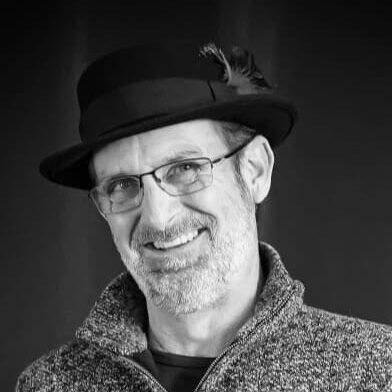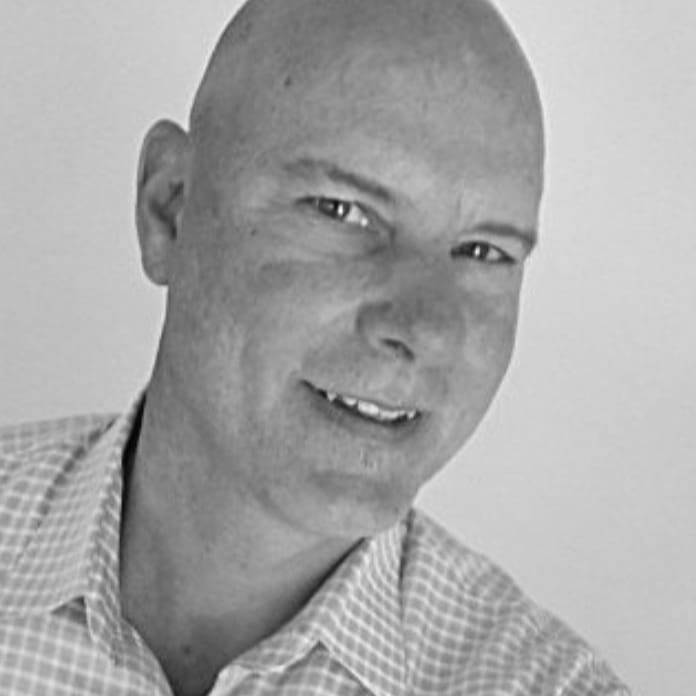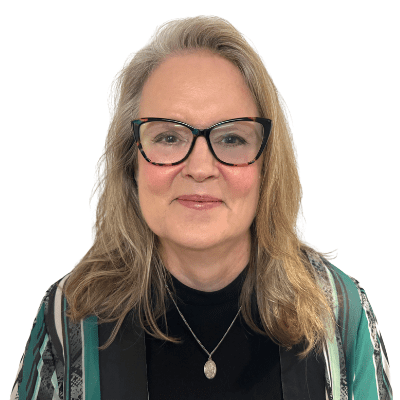On an 11-acre farm in the rural outskirts of Fayetteville, Jody Hardin and Richard Ims are tackling one of Northwest Arkansas’ biggest environmental challenges: surplus poultry litter in the Illinois River watershed. Communities Unlimited (CU) and the Walton Family Foundation demonstrate how a Community Development Financial Institution (CDFI) and private philanthropy can work together to spark rural entrepreneurship opportunities that might not otherwise exist.
Hardin, a fifth-generation Arkansas farmer, and Ims, an entrepreneur and veteran, co-founded Carbon Chicken Project, a startup that transforms chicken waste from producers like Simmons and Tyson into carbon-negative fertilizer and biochar, a soil enhancer that locks carbon in the ground. Their work addresses nutrient runoff from excess poultry litter, a problem that has long threatened water quality across Northwest Arkansas and into Northeastern Oklahoma.
“It’s an upcycling project to create a higher-value product so that we can take the poultry litter, create a better product, and sell it outside of the region where phosphorus is needed,” Hardin said.
Carbon Chicken’s signature product, Carbon Chicken 80-20, blends 80% composted chicken litter with 20% inoculated biochar infused with a proprietary microbial mix. Pelletized for precision application, it offers farmers a slow-release, carbon-rich alternative to synthetic fertilizers.
“Farmers feel a little bit stuck sometimes because synthetic fertilizers are degrading the soil,” Ims said. “Even though our product is priced higher, we see it as an investment in year-over-year improvement of soil biology to get greater yields and healthier plants.”
A Farm-Based Innovation Hub
The company’s “innovation farm” doubles as both a production site and testing ground, where Hardin and Ims refine their fertilizer and run trials with local farmers. Their ambitions extend beyond agriculture: Carbon Chicken’s biochar is produced through pyrolysis, a process that generates negative-emission electricity while creating biochar suitable for construction use.
“The fortunate byproduct of that is biochar that can be used agriculturally or in construction materials such as cement, asphalt, and steel production,” Ims said.
Their innovation is already attracting interest from regional partners, including one in South Arkansas that could lead to Carbon Chicken’s first large-scale pyrolysis reactor, pending a feasibility study.
The CU Connection
Scaling a science-driven business takes capital — often a hurdle for rural entrepreneurs. When Ims attended a local entrepreneurship event, he met Brian Wells, Area Director of Entrepreneurship at CU, a certified CDFI.
“Brian had a table there. I said, hey, what do you do?” Ims recalled. “And he told me, and I started telling him about our process and project and product. He was very intrigued.”
Hardin’s ties to CU run deep. CU CEO Ines Polonius first met him in 2007 while leading alt.Consulting, CU’s predecessor. Their first meeting was on Hardin’s family farm in Grady, Arkansas, land his family had worked for generations. Even then, he was a champion of sustainable agriculture, advocating for a statewide network of farmers markets that helped launch Arkansas’ local foods movement.
Before CU’s merger in 2014, Ines reconnected with Hardin as he transformed the old St. Joseph Catholic orphanage property in North Little Rock into St. Joseph Farm, partnering with Heifer’s Seeds of Change. alt.Consulting helped shape its business model, and it was there Hardin first introduced Ines to biochar — then just a small-scale experiment. She recalls him saying one day he would build a business around it. With Carbon Chicken, he’s done exactly that.
“Jody is an entrepreneur through and through,” Ines said. “He has the incredible mind of an innovator and investor, always focused on solving problems, particularly in agriculture.”
When Ims mentioned Ines’ involvement with CU, Hardin remembered instantly.
“Ines is a powerhouse,” he said. “She knows everything that’s happening in Arkansas finance right now.”
Once Carbon Chicken engaged with CU’s Entrepreneurship Team, Wells worked with them on business planning, financial projections, and investor pitches.
“This is the most unique business I’ve worked with in my six years at Communities Unlimited,” Wells said. “It has tremendous potential not only to make money but also to create positive environmental impacts.”
He connected them with Debra Leach, CU’s Area Director of Lending, who helped secure a Walton Family Foundation loan to cover packaging materials needed for their recent expansion into five Tractor Supply stores, allowing them to prepare their products for retail shelves.
“It has been an absolute joy,” Leach said. “They are on the cusp of doing something important for all of Northwest Arkansas and Northeastern Oklahoma in terms of how chicken waste impacts the environment. It’s been an honor and a privilege to work with them.”
Hardin agreed:
“We feel like we are one of the most unique companies in Northwest Arkansas. We’re grateful for this little boost to help us get to a larger scale to have a more meaningful impact on the watershed. That’s what we think the Walton Family Foundation should know is that we’re here to clean up their backyard. Our project is very serious, and it’s one of the best ideas around to clean the poultry litter from the watershed.”

— Jody Hardin, Chief Executive Officer at Carbon Chicken
Carbon Chicken is also collaborating with WSBZ Farms, a longtime CU Healthy Foods client in Little Rock.
“They’re the perfect customer for Carbon Chicken 80-20,” Jody said. “They’re using a new conservation practice that reimburses farmers for carbon-infused nutrients, and we have the only product in Arkansas that qualifies.”
The Role of CDFIs in Rural Entrepreneurship
According to this video, every dollar CU receives from the CDFI Fund stretches far beyond its original value. In 2024 alone, CU turned every CDFI Fund dollar into $7.20 in private funding — money from banks, lenders, and grants. When CU layers in federal and state resources, that single dollar grows to $161 of impact. In simple terms, leverage means taking one dollar and using it to pull in many more from other sources.
The CDFI Fund has long been a lifeline for underserved communities, particularly when deployed by rural CDFIs like CU. Its investment allowed CU to build the largest rural water and wastewater lending portfolio in the country, pairing capital with technical assistance to reduce risk.
CU applies this same model to rural small businesses, which often drive economic growth in places where large corporations can’t. Yet rural lending remains challenging due to collateral limits, geographic distance, and the decline of local banks. CU’s approach — blending CDFI Fund resources with business consulting — helps entrepreneurs grow, create jobs, and strengthen their communities.
This work is amplified by the Walton Family Foundation’s investment in CU, which has strengthened the entrepreneurial ecosystem in Washington and Benton counties in Northwest Arkansas. By combining philanthropy with CU’s technical assistance and lending, the partnership supports ventures like Carbon Chicken. CU worked closely with them on costs, margins, and operations to prepare for growth.
Coleman Warren, CU’s Public Policy Coordinator, explains why this matters:
“Rural entrepreneurs have long lacked access to capital, especially as community banks decline. CDFIs fill that gap, with the CDFI Fund and philanthropy fueling growth in overlooked rural areas. Carbon Chicken is a perfect example — farmers using their expertise to help other farmers in innovative ways. However, we support that will be instrumental not just for Arkansas or this region, but for our entire country.”
Together, CU and the Walton Family Foundation are demonstrating how targeted investments can unlock opportunity, strengthen rural economies, and support innovations that benefit communities far beyond Northwest Arkansas.
What’s Next for Carbon Chicken
With CU’s support, Carbon Chicken is scaling production, pursuing contracts with regional partners, and preparing for a second loan to fund equipment and expansion.
“Working with Communities Unlimited has been very beneficial,” Hardin said. “We’ve had all kinds of benefits.”
Their vision extends beyond fertilizer toward building a circular bioeconomy in Northwest Arkansas, using biochar and pyrolysis to turn agricultural waste into renewable energy.
“There’s one day I’m telling people we’re creating the first circular bioeconomy in Northwest Arkansas,” Hardin said. “We’re developing carbon farming techniques and bringing tools to farmers that could be a silver bullet to fix soil fertility, biology, and compaction. We think we’ve got a very powerful solution.”
As Ims added:
“We’re capital hungry, we’re building our capital stack. Thank you, Walton Family Foundation and Communities Unlimited, for helping us do that. We’re hoping this is the beginning of a bigger partnership because we want to show the value of what we’re doing here."

— Richard Ims, Chief Business Officer at Carbon Chicken
Leach summed it up best:
“At Communities Unlimited, our mission is to make small businesses better, strengthen our communities, and ultimately help make the world a better place. Working with Carbon Chicken is really the trifecta. It’s exciting to be a part of something that can have such a far-reaching impact.”

— Debra Leach, CU’s Area Director of Lending

